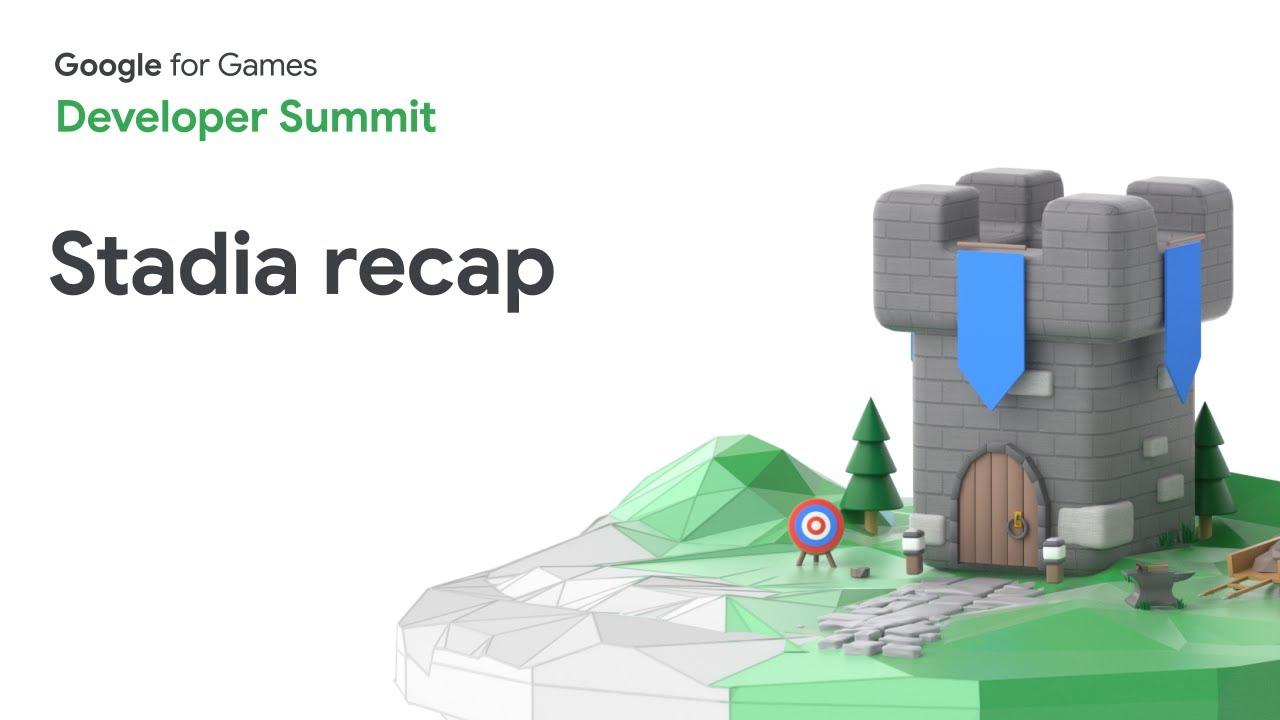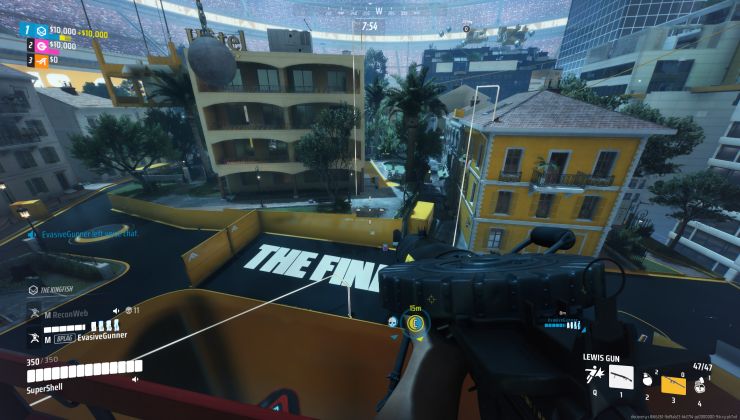At the recent Google for Games Developer Summit it seems that Google actually still has quite a clear focus on Stadia and they're trying to entice more developers to bring their games over.
For starters, the optional Stadia Pro subscription will (starting this month) have new titles that enter Stadia Pro give back 70% of the revenue to developers. This will be based upon "engagement", meaning it's depending on how much time players spend with each title which according to Google it's an "industry leading" amount to give back.
The revenue share that developers get from normal Stadia purchases is also improving. Developers will get 85% of the revenue for the first $3 million, however they mentioned this is for titles launching between October 1, 2021 to the end of 2023. After that, it goes back to the "normal" cut which they didn't say but a Google spokesperson mentioned it's aligned with other stores (so likely back to Google taking around 30%).
Stadia will also give developers a special click-to-play link, expanding upon their current implementation that lets users click a link and jump into a game with a new affiliate program. So developers will get their own links, and earn bonus revenue ($10 per user) from users using their links who end up signing up for Stadia Pro.
Developing for Stadia is about to get easier too. Stadia is based on Debian Linux with games needing to use the cross-platform Vulkan API, which has caused getting ports to Stadia to be slower than other cloud gaming services since developers actually need to build it for Stadia (whereas GeForce NOW for example just uses the existing Windows builds). They've announced new testing and development tools for developers, they've simplified getting games certified and approved for Stadia and there's going to be a whole new Stadia Porting Toolkit.
The Stadia Porting Toolkit is a very interesting one, as they're saying developers won't need to manually port from DirectX to Vulkan. One part of it mentioned was a set of translation libraries for DirectX to Vulkan, which sounded very much like what DXVK and VKD3D-Proton do right now for Steam Play Proton.
You can see a short round-up of some announcements below:

Direct Link
Stadia is now closing in on 200 titles too, with quite a lot more planned to be releasing across this year. Perhaps with these new revenue models we might see a sudden surge towards the end of this year / early next year.
Additionally, it was just announced that FIFA 22 will release on October 1 for Stadia too. There's been a bit of an uproar about this, as it's getting a new "HyperMotion" next-gen tech for consoles and Stadia but the Windows version will not be getting all the special new tech and yet Stadia is. Streets of Rage 4 is also releasing for Stadia on July 15, and your last chance to claim Orcs Must Die! 3 on Stadia Pro will be today so be sure to claim it if you haven't already.
Play Stadia on Linux on Stadia.com with a Chromium browser.
it's getting a new "HyperMotion" next-gen tech for consoles and Stadia but the Windows version will not be getting all the special new tech.
So it's Linux > Windows!
... in theory, in the cloud.
The good thing about Stadia was that it resulted in knowledge about Linux development and the Vulkan API in the studios (+ support in their tech-stack).
The one positive takeaway from the presentation is in my eyes that their porting toolkit helps with the 64-bit adoption in game studios.
I'm not a fan of the DirectX support. Until now, I haven't seen a single game that made it from Stadia to the Linux desktop.
The good thing about Stadia was that it resulted in knowledge about Linux development and the Vulkan API in the studios (+ support in their tech-stack).
The one positive takeaway from the presentation is in my eyes that their porting toolkit helps with the 64-bit adoption in game studios.
The DirectX component is no worse (and I guess no better) than what's being done in wine and DXVK though in terms of a translation, and at least the game still needs to be compiled natively. Which is actually similar to what many porting studios have done in the past for native titles - a source level translation layer rather than a runtime one.
Google never said it would bring games to desktop, and no game studio ever mentioned it either.
Of course I still prefer direct development on Vulkan and cross-platform libraries as well. Porting after the fact just means everything is still just doing whatever Microsoft dictate.
I have never said that they promised selling Linux ports. The point I was trying to make is that for the average desktop Linux user the positive effects of Stadia are limited to knowledge transfer of Linux friendly APIs and technologies + improved Linux support in in-house engines. So over time it shrinks the knowledge and capability gap to do Linux builds. Even if it never trickles down into Linux builds it could result in a Vulkan renderer in windows builds of the game. From a performance standpoint, Vulkan builds tend to perform better in wine than DirectX builds.
I'm not a fan of the DirectX support. Until now, I haven't seen a single game that made it from Stadia to the Linux desktop.
The good thing about Stadia was that it resulted in knowledge about Linux development and the Vulkan API in the studios (+ support in their tech-stack).
The one positive takeaway from the presentation is in my eyes that their porting toolkit helps with the 64-bit adoption in game studios.
its worse than that.
many people played games on consoles and consoles alone, that didnt solved our issue with the lack of marketshare, people who played on consoles didnt used linux, so even if those games became avaliable to play on linux thanks to stadia, that wont magically change our marketshare.
and if our marketshare dont change, then they have no reason to support it.
i fear that the cloud future will be nebulous.
i mean, if we didnt got more marketshare, what will be the result of that then? simple, the ultimate drm, and as soon as they start making more cloud exclusive games , we can kiss goodby to preservation, say hello to region locking and regional censorship will be impossible to avoid.
Last edited by elmapul on 14 Jul 2021 at 1:25 pm UTC
Until now, I haven't seen a single game that made it from Stadia to the Linux desktop.
Orcs Must Die! 3 is the one that came up my mind immediately. This game is just sooo much fun in coop-mode, it's incredible! It has been Stadia exclusive for one year and will be available on Steam by July 23th (including Linux, of course).
In fact, the Devs have been saying that this game only exists because it's making was funded by Google/Stadia.
But I guess there are more examples of games making their way from Stadia to Linux, not only this one, or am I wrong?
Last edited by lessster on 14 Jul 2021 at 1:56 pm UTC
Orcs Must Die! 3 is the one that came up my mind immediately. This game is sooo much fun in coop-mode, it's incredible! Has been Stadia exclusive for one year and will be available on Steam by July 23th (including Linux, of course).It is not coming to Linux, whoever told you that is wrong. Being on Steam does not mean supported on Linux.
Orcs Must Die! 3 is the one that came up my mind immediately. This game is sooo much fun in coop-mode, it's incredible! Has been Stadia exclusive for one year and will be available on Steam by July 23th (including Linux, of course).It is not coming to Linux, whoever told you that is wrong. Being on Steam does not mean supported on Linux.
Well sorry then, I guess that was my fault then. I was so happy to see it showing up on Steam and automatically seemed to think that would mean Linux support as well. But yes, you are right, the Steam Store page doesn't mention Linux. Sorry for the mistake!
So it seems that's another gem that sadly will be available for Linux users via Proton only. That's better than being not available at all, but still slightly disappointing.
Last edited by lessster on 14 Jul 2021 at 2:11 pm UTC
Last edited by kellerkindt on 14 Jul 2021 at 3:27 pm UTC
Well . . . probably no incentive. If they are actually trying to make a Switch-like, Linux-based gaming platform thingie and are serious about it, they have an incentive to boost the number of titles which will work reliably on that platform when it comes out.I think this is where valve should step in an help out and/or push game studios to also update & publish the Linux/Stadia version onto Steam for Linux desktop... which seems to me like low hanging fruits...?
Why would Valve do that?
Leaving aside that Google probably has terms in place precisely to prevent such a thing, especially if they're directly helping game studios to create that version, there's really nothing in it for Valve, no incentive for them to do so.
If. So far our speculations on that issue have rather thin foundations.
Last edited by Purple Library Guy on 14 Jul 2021 at 11:58 pm UTC
Well . . . probably no incentive. If they are actually trying to make a Switch-like, Linux-based gaming platform thingie and are serious about it, they have an incentive to boost the number of titles which will work reliably on that platform when it comes out.Which is why Valve cares primarily about Proton.
[...]
i mean, if we didnt got more marketshare, what will be the result of that then? simple, the ultimate drm, and as soon as they start making more cloud exclusive games , we can kiss goodby to preservation, say hello to region locking and regional censorship will be impossible to avoid.
"...but that's without our <insert well-known brand> VPN solution !"
Well . . . probably no incentive. If they are actually trying to make a Switch-like, Linux-based gaming platform thingie and are serious about it, they have an incentive to boost the number of titles which will work reliably on that platform when it comes out.Well. Reality seems to have bypassed me a tad. The foundations just [thickened rather](https://www.gamingonlinux.com/2021/07/valve-has-formally-announced-the-steam-deck-a-portable-handheld-console-with-steamos).
If. So far our speculations on that issue have rather thin foundations.
[...]
i mean, if we didnt got more marketshare, what will be the result of that then? simple, the ultimate drm, and as soon as they start making more cloud exclusive games , we can kiss goodby to preservation, say hello to region locking and regional censorship will be impossible to avoid.
"...but that's without our <insert well-known brand> VPN solution !"
W.R.O.N.G.
we cant rely on VPN forever because cloud gaming has an magic thing called "input lag", the light speed has an limit, you cant send an signal for an server in the other side of the world and receive the result in less than 1/7 second, even in an straight line without any processing involved.
now add the detour to the vpn servers, and other detour from an straight line+the time to process, encode and decode the image and we quickly see the limits of this tech.
its not an big deal if you live close to the servers, but as i said, what if the game is exclusive to another country and to the cloud?
and what if they decide to stop distributing/selling the game because the rights to an character expired or something like that?
Last edited by elmapul on 16 Jul 2021 at 8:14 am UTC
[...]
i mean, if we didnt got more marketshare, what will be the result of that then? simple, the ultimate drm, and as soon as they start making more cloud exclusive games , we can kiss goodby to preservation, say hello to region locking and regional censorship will be impossible to avoid.
"...but that's without our <insert well-known brand> VPN solution !"
W.R.O.N.G.
we cant rely on VPN forever because cloud gaming has an magic thing called "input lag", the light speed has an limit, you cant send an signal for an server in the other side of the world and receive the result in less than 1/7 second, even in an straight line without any processing involved.
now add the detour to the vpn servers, and other detour from an straight line+the time to process, encode and decode the image and we quickly see the limits of this tech.
its not an big deal if you live close to the servers, but as i said, what if the game is exclusive to another country and to the cloud?
and what if they decide to stop distributing/selling the game because the rights to an character expired or something like that?
I know, but most VPN sellers will market you otherwise
I was just replying in a sarcastic way to the argument of region locking / unavailable content.
[...]
i mean, if we didnt got more marketshare, what will be the result of that then? simple, the ultimate drm, and as soon as they start making more cloud exclusive games , we can kiss goodby to preservation, say hello to region locking and regional censorship will be impossible to avoid.
"...but that's without our <insert well-known brand> VPN solution !"
W.R.O.N.G.
we cant rely on VPN forever because cloud gaming has an magic thing called "input lag", the light speed has an limit, you cant send an signal for an server in the other side of the world and receive the result in less than 1/7 second, even in an straight line without any processing involved.
now add the detour to the vpn servers, and other detour from an straight line+the time to process, encode and decode the image and we quickly see the limits of this tech.
its not an big deal if you live close to the servers, but as i said, what if the game is exclusive to another country and to the cloud?
and what if they decide to stop distributing/selling the game because the rights to an character expired or something like that?
I know, but most VPN sellers will market you otherwise(I think I have even seen the argument of "going through our servers will in fact reduce your lag")
I was just replying in a sarcastic way to the argument of region locking / unavailable content.
oh sorry, i'm really slow with sarcasm










 How to set, change and reset your SteamOS / Steam Deck desktop sudo password
How to set, change and reset your SteamOS / Steam Deck desktop sudo password How to set up Decky Loader on Steam Deck / SteamOS for easy plugins
How to set up Decky Loader on Steam Deck / SteamOS for easy plugins
See more from me